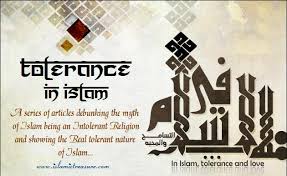
The core of any religion is its basic principles or beliefs. In Islam, these beliefs are simple and their logic can be grasped by anyone with an open mind and heart. The Shari’a is a methodology for applying these principles in everyday life. This page is divided into two sections: Aqida (belief) and the Shari’a (law). Includes new section on “jihad”.
Aqida: What Muslims believe
Aqida is an Arabic word meaning belief. I hope that eventually this site will tell you in detail about what Muslims believe and why they do so. At the moment, all the links below are off site. If you want to know basic things about Allah and the Qur’an, go to my Introduction to Islam page.
The Basis of Muslim Belief: Gary Miller, a Canadian mathematician, describes the logic and rationale (as he understands it) of Islam. This site is highly recommended for both Muslims and non Muslims.
Tauhid: The key principle of Islam, the Oneness of God. By Abdul A’la Mawdudi, a famous Pakistani ‘Alim (scholar).
Religion & Philosophy: how do I know that God exists? Ibn Rushd, better known in the West as Averroes, provides a philosophical argument against atheism. A truly brilliant man from a magnificent period of Muslim history.
Radio al Islam: A set of real audio recordings discussing in detail the implications of Islamic monotheism, prophethood, and other issues. Quite extensive, but clarification for those who might be inclined to impose their own religions constructs on Islam. In my opinion, this site is also good for Muslims: how much are the beliefs you were taught as a child in accordance with scholarly Islam?
Shari’a: the divine guidance
The Shari’a is often translated as “Islamic law”. To a Muslim these rules are not a burden, but a divine mercy to humankind. The ultimate sources of the Shari’a are the Quran and the ‘sunnah’, the example of the Messenger of God, Muhammad (may the peace and blessing of God be upon him). The job of interpreting the Shari’a belongs to the knowledgeable among the believers, the ‘Ulema (scholars). The basis of this is this hadith.
As there is no ecclesiastical hierarchy in Islam, the decisions reached by any ‘ulema in any particular time are not final, but rather are continuously open for debate. It is therefore completely inappropriate to refer to an Islamic state as a theocracy. While the rulers of such a state should be familiar with the principles of Islamic law, in no way can they be considered to be priests. Their job is to formulate and enact legislation that is appropriate to the society which they are responsible for, always taking the Quran and the authenticated sunnah as their ultimate source of guidance.
Jihad. Perhaps there is no Islamic concept that is as misused and misunderstood as “jihad”. A ‘must read’ for anyone who has ever said, “there are many good parts to Islam, but I can’t agree that there’s such a thing as “holy war”. Well, guess what, we don’t think there is either!
Al-Maqasid: Imam An-Nawawi’s Manual on Islam. This is a brief introduction to a number of principles of Islamic law, according to the school of Shafi’i. It is more useful for Muslims who are familiar with the basics of Islam, and explains in detail about the salah (prayers).
Fiqh us Sunna: Contemporary personal jurisprudence. A really useful resource for those who want fiqh positions based on the Qur’an and sunna.
Contemporary legal advice from Dr. Muzammil H. Siddiqi. A excellent source of contemporary fatawa (legal opinions) which will be very useful for Muslims, insha Allah, particularly those living in the West where appropriately qualified scholars may be remote.
May Allah reward you in your search for knowledge. Any questions or constructive comments, please email me at the address on my home page.
